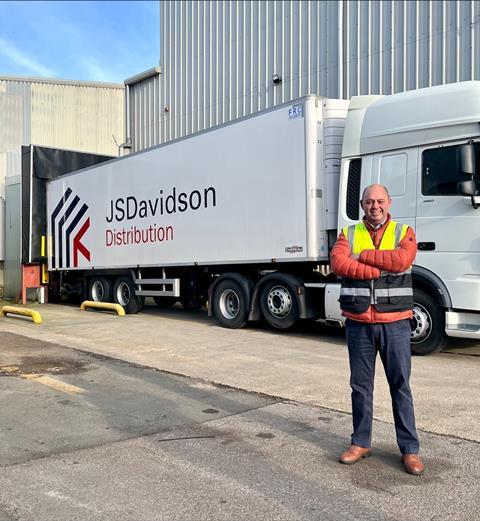
With record temperatures surging throughout the globe this July, the era of ‘global boiling’, as its now coined, has seemingly arrived with a vengeance.
The need to drive decarbonisation has never been greater. Increased energy costs – which still remain above pre-pandemic levels despite the drop of wholesale gas prices by 46% since last June – along with volatile weather conditions has sparked alarm bells across the globe.
While UK prime minister Rishi Sunak MP has recently sanctioned hundreds of new oil and gas licences for the UK, potentially bringing the country’s 2050 net zero target into question, our industry must continue pressing on with its sustainability targets.
To assist in driving the industry forward in matching the UK’s goal of bringing down greenhouse emissions to net zero, the Cold Chain Federation launched its own ‘Net zero project’ in 2020, which aims to help the industry meet the challenge of decarbonising the UK economy.
Data on the impact the cold chain sector has on the UK’s overall carbon footprint is not clear-cut, but it has been estimated that food refrigeration systems – which are a major element of the wider cold chain network – account for approximately 2% to 4% of total greenhouse gas emissions in the UK.
With this in mind there is a responsibility on the industry to press forward with sustainability plans, not only to help fight to climate change but also to future-proof temperature-controlled businesses in the years and decades to come.
The need to invest into alternative means of energy has never been greater. With environmental sustainability high on the global agenda in a bid to tackle the ever-worsening climate crisis, the industry has a responsibility to play its part in helping to drive forward its sustainability plans.
Understandably as a consequence of the rise in inflation and interest rates, investment into alternative energy sources may have to be put on hold for the time being for some temperature-controlled operators, but compromising on sustainability plans altogether is very much a false economy.
We are noticing year on year that, as the nation becomes more acutely aware of the harm greenhouse gases causes to the environment, more onus is being placed on the industry to think greener in every aspect of operation. This is particularly apparent with regards to buy-in from customers both existing and new when they learn of our ongoing investment programme into renewables.
Therefore, while safeguarding the environment is a significant benefit of considering alternative sources of energy, there can also be long-term financial benefits for operators. Implementing energy-saving measures can lead to reduced operational costs over time through lowering energy bills, as well as provide operators the opportunity to identify areas within their business which are inefficient, replacing them with more sustainable processes, systems, or technologies.
Maximising efficiency and investing in alternative energy will be key to offsetting emissions for temperature-controlled operators in the UK and beyond, and capitalising upon new and innovative technologies is a fundamental driver for reducing carbon emissions – something that our company has successfully integrated into its operation in recent years, and is already experiencing tangible benefits as a result.
As a progressive business, we have consistently explored sustainability opportunities when available and conducted an ongoing investment programme in its site facilities to ensure maximum energy efficiency is retained.
This has included converting our entire lighting system across both our sites to LED as well as upgrading the insulation used to line the building to better thermal performance panels, ensuring as little cold escapes as possible. This year, we will be introducing a number of ground breaking renewable energy processes to further reduce our greenhouse emissions as well as general dependency on non-renewable energy sources.
John Davidson, MD of temperature-controlled solutions specialist JS Davidson













